- Home
- Undergraduate
- Courses
Film Studies
Questions?
Program DirectorDr. Chris Keep
ckeep@uwo.ca
519.661.2111 x85829
Arts & Humanities Academic Counselling
arts@uwo.ca
519.661.3043
Film Studies Courses
featured courses
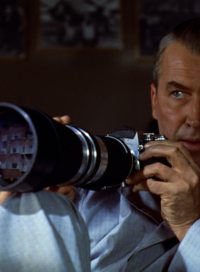
1022-002 - Introduction to Film Studies
What is a blockbuster? What makes a documentary a documentary? What is expressionism? Discover the answers to these questions and others in a broad introduction to the study of cinema. Students will learn the basic vocabulary of film studies and gain an informed understanding of the different critical approaches to film analysis.
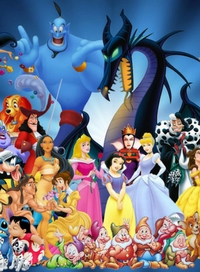
2159A/B - Disney (Disney Dream Factory)
Study Disney film's relationship to art, society and politics and examine constructions of race, class, gender, and sexuality in Disney's filmmaking.
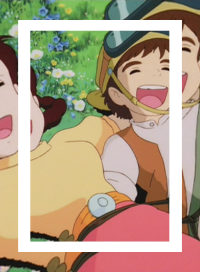
2164A - Animation/Anime
This course explores the power of animation, with a particular emphasis on Japan. Students will study Japanese anime films and multimedia franchises as artistic expressions, as industrial products with relations to other cultural forms, and as objects through which consumers construct their social lives. No knowledge of Japanese is required.

2254F - Classical Hollywood Cinema
Explore the indelible impact that the Golden Age of Hollywood had in the history of filmmaking.
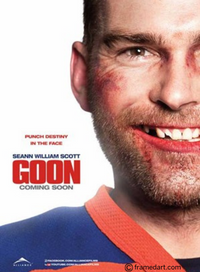
2258G - Canadian National Cinema
This course seeks to answer the historical, cultural, ideological and aesthetic questions about Canadian cinema.
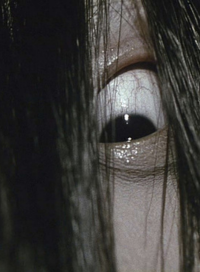
3340G - Japanese National Cinema
This course studies the art and commerce of Japanese cinema, from its prehistory to the work of contemporary transnational auteurs. Students will study films in their historical and aesthetic contexts, and in relation to specific topics in film studies. For example: the war film and propaganda; postwar melodrama; and J-Horror. No knowledge of Japanese is required.
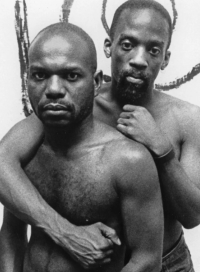
3352G - Queer Cinema
This course examines the AIDS epidemic through the lens of New Queer Cinema of the 1990s.
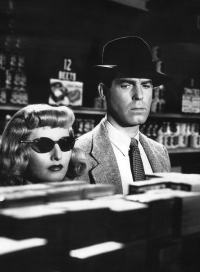
3366F - Film Noir and the Crime Genre
Emerging in the 1940s, film noir offers a stylish, cynical, and thrilling portrayal of crime, violence, sexuality, and morality. This course examines the development film noir, including both classics and contemporary examples of "dark cinema."
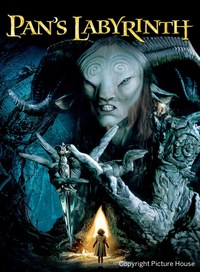
3373G - Reframing National Cinemas
This course will provide students with a rigorous interrogation of national cinema informed by theories of identity, nation, and globalization developed by such figures as Benedict Anderson, Arjun Appadurai, Etienne Balibar, Homi Bhabha, Stuart Hall, bell hooks, and Edward Said.
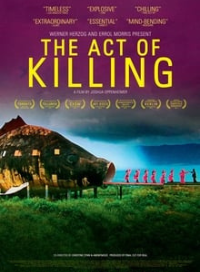
3374F - Documentary Film
This course will consider documentary as a form of representation and, as such, trouble its relationship to the 'objective reality' it seeks to represent.
See Western Academic Timetable for course delivery details.
FALL/WINTER 2023-24 COURSES (subject to change)
1000 Level Courses
1022 (001) - Introduction to Film Studies POPULAR!
What is a blockbuster? What is a cult film? What is digital cinema? Discover the answers to these questions and others in a broad introduction to the study of cinema. Students will learn the basic vocabulary of film studies and gain an informed understanding of the different critical approaches to film analysis. 1.0 course
| Fall/Winter | 1022 / 001 | Syllabus |
1022 (002) - Introduction to Film Studies POPULAR!
What is a blockbuster? What makes a documentary a documentary? What is expressionism? Discover the answers to these questions and others in a broad introduction to the study of cinema. In the first term, students will learn the basic vocabulary of film analysis. In the second term, we will study the methods and issues of film studies in general – what are genres and how do they relate to their social contexts? What is auteurism? What kind of films are there, beyond the narrative feature films we're familiar with? What is the history of the medium, and what alternatives to mainstream cinema have been proposed? By the end of the course you will have gained an informed understanding of the different critical approaches to film analysis and film studies. 1.0 course
| Fall/Winter | 1022 / 002 | Syllabus |
2000 Level Courses
2159A/B - Disney (Disney Dream Factory) POPULAR!
Benjamin Barber in The New York Times argued “whether Disney knows it or not, it is buying much more than our leisure time. It has a purchase on our values, on how we feel and think, and what we think about.” This course offers a closer look at Disney as one of America's most long-standing “dream factories,” examining the cultural narratives, industrial strategies, fantasies and ideologies that fuel Disney’s global impact in the 20th and 21st century. In addition to analyzing key Disney animated features, we will also look at the studio’s early cartoons, educational and advertising films, nature documentaries, live action films and propaganda shorts. We will study Disney’s relationship to art, politics and ecology and also examine the “invention” of childhood, notions of “family” entertainment and constructions of race, class and gender in Disney filmmaking. Films might include Bambi, Sleeping Beauty, Tron, Snow White and the Seven Dwarfs, Song of the South, Steamboat Willy, Fantasia, The Lion King and Frozen. 0.5 course
| Fall 2023 | 2159A / 001 | Syllabus |
| Winter 2024 | 2159B / 650 (Online) | Syllabus |
2164A - Animation/Anime
This course explores the power of animation, with a particular emphasis on Japan. Students will study Japanese anime films and multimedia franchises as artistic expressions, as industrial products with relations to other cultural forms, and as objects through which consumers construct their social lives. This is a non-essay course, so the emphasis is on hands-on group work (analyzing images, putting together a sequence, researching anime's "media mix"), as well as regular forum posts and a final examination. The emphasis is on my own "otaku 1.0" history – science fiction, posthumanism, and apocalypse – but you will also have the opportunity to discuss your favorite contemporary animation. No prior knowledge of Japanese is required. 0.5 course
| Fall 2023 | 2164A / 001 | Syllabus |
2212F - Adapting across Page, Stage, and Screen (cross-listed with English 2112F and Theatre Studies 2212F)
How does the shape an artwork takes contribute to its aesthetic and political power? When artworks flex across form and media how do their messages change? What did Marshall McLuhan mean when he said “the medium is the message”? How do genre and form shape social and political discourse? In this course, students explore these questions and more as they investigate texts that assume multiple cultural forms and represent a diversity of perspectives. 0.5 course
| Fall 2023 | 2212F / 001 | Syllabus |
2230F - Critical Reading and Writing in Film Studies
This course will build on skills and knowledge acquired in Film 1022 to engage students in the critical practices involved in reading various genres of writing in Film Studies. In addition to writing their own film reviews, students will learn research skills that prepare them for writing critical essays on cinema. 0.5 course
| Fall 2023 | 2230F / 001 | Syllabus |
2252G - World Cinema
A survey of the history of world cinema, with a focus on postwar film cultures in areas such as Africa, Latin America, Asia, Europe, and Australia. Students will study films as expressive audiovisual texts and examine larger social, economic, and cultural patterns of influence in the global cultural economy. 0.5 course
| Winter 2024 | 2252G / 001 | Syllabus |
2254F - Classical Hollywood Cinema
This course traces a history of American film from the silent period to the end of the studio era. Topics include the establishment of the Hollywood style, major directors/genres, as well as key industrial, technological, and cultural factors in the development of Hollywood cinema. 0.5 course
| Fall 2023 | 2254F / 001 | Syllabus |
2258G - Canadian National Cinema
This course looks at Canadian cinema in relation to the category label, national cinema. What is the value of a national cinema? What is the popular imagination? How do the films speak to us about Canada, its history, its people and its politics? 0.5 course
| Winter 2024 | 2258G / 001 | Syllabus |
3000 Level Courses
3330F - National and Transnational Cinemas
This course offers an in-depth examination of a specific national film culture or related group of cultures. The course may address the entire cinematic history of a specific nation-state, be narrowed by a historical period, mode or region within a national cinema, or extended across national borders. 0.5 course
| Fall 2023 | 3330F / 001 | Syllabus |
3335G - Contemporary German Cinema
This course introduces students to Contemporary German Cinema after unification. Topics include the "Berlin School" and transnational film production, Ostalgie, European identity, migration, and historical memory. The relationship to the auteurism of post-war New German Cinema will also be examined. 0.5 course
| Winter 2024 | 3335G / 001 | Syllabus |
3340G - Japanese National Cinema
This course studies the art and commerce of Japanese cinema, from its prehistory to the work of contemporary transnational auteurs. Students will study films in their historical and aesthetic contexts, and in relation to specific topics in film studies. Each week will cover an important development in this non-western cinema, in relation to a topic that has been important in the history of film studies. For example: the benshi and the transition to sound; the war film and propaganda; postwar melodrama; auteurism; and the horror film. By the end of the course students will have gained a nuanced understanding of how cinema as an industry and as a medium developed in a specific location outside North America – not simply different from Hollywood but "facing up" to the cultural challenge that it posed. No prior knowledge of Japanese is required. 0.5 course
| Winter 2024 | 3340G / 001 | Syllabus |
3352G - Queer Cinema: New Queer Cinema and the AIDS Epidemic
Focusing on the groundbreaking work of queer filmmakers (and activists) such as Derek Jarman, Todd Haynes, Marlon Riggs, Barbara Hammer, and others, this course examines the AIDS epidemic through the lens of New Queer Cinema of the 1990s. We will analyze mainstream modes of representing AIDS in the 1980s to help contextualize the resistant formal and political strategies of New Queer Cinema. We will also explore the emergence of ACT UP and the use of video and other visual arts by AIDS activists as a form of countering panic-based representations of the disease, informing the public about safer sex, and bearing witness to the diverse experiences of PWAs. The second half of the course will examine transitions in both AIDS activism and queer cinema in relation to the emergence of antiretroviral drug therapies. Here we will discuss issues of trauma, survival, historical memory, and global AIDS activism. Our analysis of key New Queer Cinema texts—including Tongues Untied, Poison, The Living End, Blue, and Nitrate Kisses—will grapple with their narrative and formal experimentation, their critical engagement with popular genre cinema, and their reimagination of the parameters of illness, identity, and normalcy. 0.5 course
| Winter 2024 | 3352G / 001 | Syllabus |
3356G - Avant-Garde Cinema
An exploration of a variety of marginal film practices and modes of production through an historical consideration of the major trends and developments in European, American, and Canadian avant-garde. Films will be analyzed in relation to the theoretical issues they raise, specifically, feminist theory and practice, film formalism, and spectatorship. 0.5 course
| Winter 2024 | 3356G / 001 | Syllabus |
3357G - Science Fiction Cinema
This course explores the history and development of Science Fiction cinema from the silent period to today’s CGI-saturated spectacles. Major themes include: the aesthetics of science fiction, modernity and social change, utopias/dystopias, technophobia/technophilia, identity/otherness, biopolitics, afrofuturism, set design, special effects and the “cinema of attractions”. 0.5 course
| Winter 2024 | 3357G / 001 | Syllabus |
3360F - Topics in Film Genre: Medical Drama
This course examines a specific film genre or cycle, focusing on its historical contexts and development and its aesthetic, cultural and political significance. 0.5 course
| Fall 2023 | 3360F / 001 | Syllabus |
3366F - Film Noir and the Crime Genre
This course examines the narrative and aesthetic innovations of film noir in relation to its literary origins and cinematic influences. Tending to key figures such as the hard-boiled detective and the femme fatale, the course will chart the development and revision of noir from WWII to the present. 0.5 course
| Fall 2023 | 3366F / 001 | Syllabus |
3368F - Film Production
This course will explore the stylistic functions of basic film elements, e.g., camera movement, editing, sound, and colour, through the analysis and production of films. 0.5 course
| Fall 2023 | 3368F / 001 | Syllabus |
3371F - Film Theory
This course will investigate major writings in two areas of classical film theory: the realism-formalism debate and the auteur theory. Additional topics in film poetics and semiotics will also be discussed. 0.5 course
| Fall 2023 | 3371F / 001 | Syllabus |
3373G - Reframing National Cinemas
This course will introduce students to theories of nationalism and national identity, to determine how they influence our understanding of national cinemas. Issues such as colonialism, postcolonialism, imperialism, multiculturalism, regionalism, and globalization will be explored through reading political and cultural essays. The course will examine one or two national cinemas. 0.5 course
| Winter 2024 | 3373G / 001 | Syllabus |
3374F - Documentary Film
Historically, the dominant perception of documentary or non-fiction cinemas is that they teach us about the ‘real’ world by documenting truth transparently. However, this course will consider documentary as a form of representation and, as such, trouble its relationship to the ‘objective reality’ it seeks to represent. What is at stake in representing the ‘historical real’? What issues of selection and mediation intrude between the reality unfolding in front of the lens and the projection of that reality onto a screen? As theorists such as Michael Renov and Bill Nichols argue, although a documentary film references the historical world and actual people, it also constructs an audience’s understanding of this world and its inhabitants through point of view and the post-production process.
Early practitioners and theorists of documentary were well aware of this contradiction; John Grierson, the so-called ‘father’ of documentary film and one of its first theorists describes documentary as “the creative treatment of actuality,” but audiences were frequently unaware of this creative element, often reading documentary film as ‘true’. To begin to answer the questions posed below, the course will examine the theoretical and historical development of non-fiction filmmaking from the work of early pioneers like the Lumières in late nineteenth-century France and John Grierson in early twentieth-century United Kingdom and Canada to more contemporary and innovative filmmakers who complicate and innovate documentary’s basic conventions by questioning notions of objectivity, reality and verisimilitude. Collectively, we will pose the following questions:
- What is documentary?
- How did documentary filmmaking get started?
- Why are ethical issues central to documentary filmmaking?
- What makes documentaries engaging and persuasive?
- How have documentaries addressed political and social issues?
- What roles have documentaries played in colonization/decolonization?
- How can we differentiate between documentary modes and models?
0.5 course
| Fall 2023 | 3374F / 001 | Syllabus |
4000 Level Courses
4409E - Undergraduate Thesis
Individual instruction in the selection of a topic, the preparation of materials, and the writing of a thesis. Students who wish to take this course must apply to the Program Director. The course is restricted to students in fourth year of an Honours Specialization in Film Studies. 1.0 course
| Fall/Winter | 4409E / 001 | Various | Consent Form / Evaluation Form |
4495FG - Film Academic Internship
Third or fourth year students enrolled in an honours, major or specialization in Film Studies, who have a modular average of 75% are eligible for an internship within an approved media-related organization. The student must find a faculty supervisor willing to oversee and grade his/her final paper. 0.5 course
| Fall/Winter | 4495FG / 001 | Various | Internship Guidelines |
Course listings are subject to change. See Western Academic Timetable for date, time, and location of specific courses. See Undergraduate Sessional Dates for more details and deadlines.




